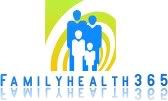
Sexual abuse involves power, control, rage and other intense, unresolved issues which are acted out in a sexual way. In any form, it entails an imbalance of personal power and disrespect for the boundaries of others--whether it's hands-off offending, like obscene phone calls and letters, or hands-on offending, like inappropriate touching, rape and other intense forms of sexual assault.
Disabilities create major changes in people's lives, and survivors often find they have less control--in an abundance of ways--than they once had. This can make them more vulnerable to those who might exploit their disability, sexual abusers included.
Sex offenders seek out the most vulnerable prospects as victims, and people with limited mobility are easy targets. Crucial to not becoming a victim is looking ahead and having a safety plan--how to feel, act and be as safe and strong as possible.
Don't Be a Victim
Attitude is paramount--if you feel confident, it shows. If you don't, that shows, too. Knowledge is equally important--where to get help if you need it, how to use self-defense tactics within your physical limitations, what your neighborhood and neighbors are like, where it's safe and where it's not. And you need to know these things both at home and away from home.
Some abusers are less obvious and more insidious than the chance attacker. They exploit vulnerability and create victims in more private ways. Some are personal health care providers, for example. By the nature of their work, they are in a position of providing--or withholding--your personal care needs. They have access to your most intimate spaces, psychological and physical, and may have the ability to set you up for abuse. This abuse, regrettably, is seldom reported to police.
If you depend on others for care, you need assertively protect yourself from abuse. Screen anyone who works for you. Unless you know them personally, always check references with diligence. If you can do so legally, run a criminal history check. And trust your hunches--if for some reason someone doesn't feel "right" to you, listen to that little voice and hire someone else. Or if that someone is already working for you, let him or her go.
Another form of subtle abuse is sexual exploitation in a relationship. The thing to watch out for here is skewed personal power. If both partners aren't on even ground with mutual respect and caring, equal control of the relationship and individual value--abuse can follow.
Do what you can to avoid becoming a victim. But if you or someone you know is abused, report it to the police and take steps to get counseling and emotional support.
Victims are never to blame for what has happened. Time and support can help them to be strong survivors. And it's never too late to spill the beans; a lady in her 80s once told me about being abused as a teen. I was the only person she'd ever mentioned it to, and being able to talk about it meant a lot to her.
The Bottom Line
You might be asking yourself, "Can people with disabilities be offenders as well as victims?" Of course, though they are a small minority. I do know of a paraplegic woman who sexually abused a boy for over a year, but he kept it to himself until he was an adult. Clearly she had her own unresolved problems and, in this case, acted them out through child sexual abuse.
The bottom line is this--respect and value yourself, and work through your personal issues (we all have them). Acknowledge and face the limitations imposed by your disability, and be assertive in relating to the world and the people in it. Be proactive about personal safety, and if you are ever sexually abused, despite your precautions, talk with someone you can trust who can give you caring support.
While sexuality is a wonderful part of being human, sexual abuse is a hurtful and quite different aspect of our human experience.
sexualhealth.com








0 comments
Post a Comment
[▼/▲] More Emoticons